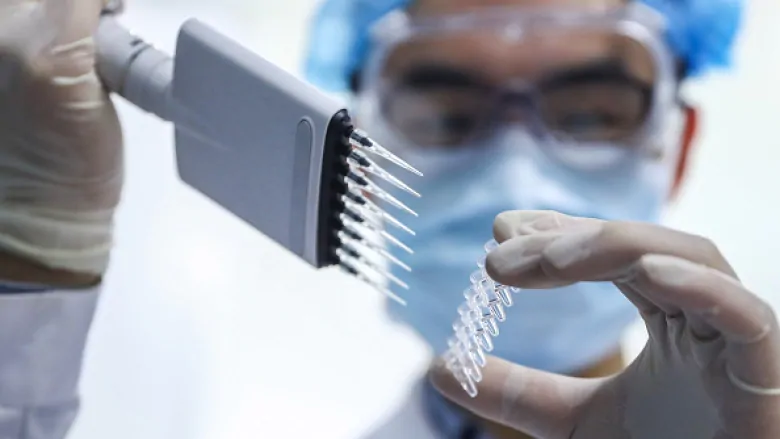Scientists racing to develop a pandemic vaccine face a daunting goal and record progress.

At least 70 research teams, including some in Canada, are racing to develop potential pandemic vaccines within a year — an accelerated pace in an unprecedented search for an end to humanity’s lockdowns.
So far, the number of vaccine developers that have shifted from lab studies in animals to early-stage clinical trials in human volunteers can be counted on one hand. But scientists are hopeful they can speed up the research and bypass some of the usual red tape that slows down the vaccine approval process.
In a pandemic, no one has immunity to the virus because it is new. The goal of a vaccine is to expose our immune system to part of the virus so our antibody fighters can prepare to attack the virus that causes COVID-19.
Dr. Scott Halperin, of the Canadian Immunization Research Network, said it’s important to have multiple versions of the vaccine that achieve the same purpose but work in different ways.
“Hopefully there’ll be five, six, seven, eight successful vaccines, because we have a whole globe that we need to protect,” the Halifax-based physician and researcher said.
The first phase of clinical trials focuses on safety, with about 30 to 50 volunteers testing out different doses of shots.
A critical next step is Phase 2 trials in a larger number of people to look for signs that the jabs meet the goal of protecting against infection.
China’s CanSino Biologics is beginning the second phase of testing a vaccine candidate, adapted from the company’s Ebola research, according to China’s Ministry of Science and Technology. Another vaccine candidate is in Phase 1.


